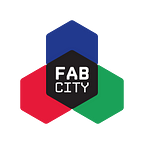Balon Balon Ijo — Our Energy From the Sea
Our mission is to provide local communities with access to clean, affordable energy. Balon Balon Ijo aims to revolutionise energy generation by harnessing the power of two abundant and sustainable resources: water and the sun.
This article showcases one of the ten challenges that were part of the Fab Island Challenge held during the Bali Fab Fest 2022 in Bali, Indonesia.
Within a span of just 10 days, the Fab Island Challenge brought together 92 participants from 23 different nationalities. One significant impact of this initiative on the local Bali ecosystem was the emergence of a new form of tourism that prioritizes supporting local innovation and preserving the region’s culture and environment.
Looking ahead, the Fab Bhutan Challenge is set to be hosted in Bhutan in 2023 as part of the Fab Fest. This approach to meaningful design and development can be replicated in various locations through collaboration with the Fab City Foundation.
As we build momentum for the upcoming Fab City Challenge, we shine a spotlight on the Balon Balon Ijo project, spearheaded by Cesar Jung-Harada, to exemplify the transformative power of local and international collaboration within the Fab City Challenge framework.
About the Balon Balon Ijo Project
We are heavily dependent on fossil-based energy resources in our daily lives. These energy resources are used in household, industries, and mobility. However, these energy resources bear several negative impacts in their transformation into energy. It releases a high amount of carbon dioxide (CO2), the main contributor to climate change. In recent research published in Our World in Data, there is an increase of 85% in fossil fuel consumption in Indonesia over the last twenty years. It is therefore paramount to transition into renewable energy resources as they are readily available. Renewable energy resources produce less carbon dioxide and are fairly economical and affordable compared to fossil-based energy. Cleaner, cheaper energy sources are needed to support individuals and communities to be more resilient. One of the renewable energy resources is hydrogen, a clean natural gas that can be found in abundance in water.
“Balon Balon Ijo” (which means “Green Balloons” in Bahasa Indonesia), proposes a comprehensive system that starts with a floating solar panel that powers an electrolysis machine, splitting water into oxygen and hydrogen gases. This hydrogen, stored at low pressure in balloons at sea, can be safely transported back to the land to be used as a combustible for cooking, run through a fuel cell to produce electricity, or compressed to power light vehicles. The Balon Balon Ijo Project was spearheaded by Cesar Jung-Harada with a diverse team of scientists, artists, engineers and designers to create more sustainable energy resources for coastal communities, especially indigenous ones.
Advantages
Balon Balon Ijo brings many advantages to its users. First and foremost, it brings economic advantages as it is more affordable than conventional fossil-based energy resources. Second, Indonesia is blessed with abundant water supply, making it possible to mass-produce renewable energy resources without jeopardising the ecosystem of coastal or marine life. Last, it encourages people to participate in a sustainable lifestyle moving towards living with little or zero net emission.
Philosophy
The Balon Balon Ijo Project adopts the Balinese philosophy of Tri Hita Karana which espouses harmony and prosperity towards people and the environment. Tri Hita Karana integrates perfectly with the three pillars of sustainability; economic, social and environmental.
Together with these foundations, the Balon Balon Ijo Project introduces global innovation to the Indonesian people and the world.
Acknowledgments
This article was authored by the Balon Balon Ijo team — Cesar Jung-Harada, Alvaro Cassinelli, Pamela Pascual, Ni Made Dwidiani, Abigail Wee, Ryan Sim, Ratna Mardiani Mulya, Hong Vu, Aldo Ikhwanul Khalid, Markus Leutwyler, Adrian Lai, Claire Chaikin-Bryan, Andreas Kopp, Ajeng Wulandari, António Chanoca, Karma Wangchu, Antonio Gordillo & Ana Chacon. The original publication of this article can be found here.
Engage with Fab City Foundation
To inquire more about the challenge format or express interest in hosting a Fab City Challenge in your locality, please reach out to challenge@fab.city.
